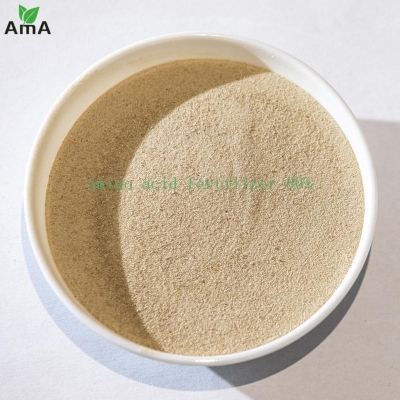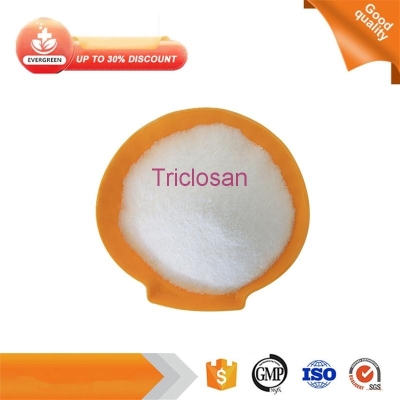-
Categories
-
Pharmaceutical Intermediates
-
Active Pharmaceutical Ingredients
-
Food Additives
- Industrial Coatings
- Agrochemicals
- Dyes and Pigments
- Surfactant
- Flavors and Fragrances
- Chemical Reagents
- Catalyst and Auxiliary
- Natural Products
- Inorganic Chemistry
-
Organic Chemistry
-
Biochemical Engineering
- Analytical Chemistry
- Cosmetic Ingredient
-
Pharmaceutical Intermediates
Promotion
ECHEMI Mall
Wholesale
Weekly Price
Exhibition
News
-
Trade Service
When it comes to DeepMind, perhaps the first thing that comes to mind is that a few years ago, it developed the artificial intelligence AlphaGo to "sweep" top human Go professionals and change the way Go thinks.
in addition to its popularity in chess, DeepMind has taken an important step toward accelerating scientific discovery.
today, DeepMind announced that its next-generation AlphaFold artificial intelligence system, which beat the rest of the participants in the International Protein Structure Prediction Competition (CASP), can accurately predict the 3D structure of proteins based on amino acid sequences.
accuracy can be comparable to that of 3D structures analyzed using experimental techniques such as cryoEM, nuclear magnetic resonance, or X-ray crystallism.
breakthrough has been described by several media as a breakthrough that "transforms biosciences and biomedical science".
D. Levinson, the former chief executive of Genentech, called the achievement a "landmark step forward."
: DeepMind Blog Biology's 50-year-old challenge We all know that proteins are essential to life and support almost all the functions of living organisms.
complex large molecules are made up of amino acid chains, and the function of proteins is largely determined by its 3D structure.
many challenges in the biomedical field, including the development of innovative therapies for the treatment of diseases, relying on an understanding of protein structure and function.
Over the past 50 years, scientists have been able to determine the shape of proteins in the lab using experimental methods such as cryoelectronic microscopes, mr. Magnetic Resonance, or X-ray crystallization, but each method relies on a large number of trials and errors, which can take years.
1972, Nobel Prize-winning chemistry laureate Dr Christian Anfinsen said that, in theory, a protein's amino acid sequence should be able to fully determine its 3D structure.
hypothesis has stimulated 50 years of exploration based on amino acid sequences to predict the 3D structure of proteins by computational methods.
, however, the major challenge in this area is that, in theory, the number of protein formations that may form in the amino acid chain is a very large astronomical number.
have estimated that a typical protein could theoretically form 10 300 times (1 plus 300 0s) of possible compositions.
in nature, however, proteins can spontaneously fold into one of the formations in milliseconds.
the calculation method used to find the correct image from the 300-square possible configuration of 10?AlphaFold: Researchers at AlphaGo DeepMind in the biological world envision folded proteins as a "spatial graph" with a 3D structure, with amino acids as nodes and lines in this "space map".
based on neural network systems, they designed the AlphaFold system to analyze the structure of this spatial drawing.
it uses evolutionaryly related amino acid sequences, multiple sequence comparisons (multiple sequence alignment, MSA), and evaluation of amino acid pairs to optimize the depiction of "spatial drawings".
alphaFold's neural network model architecture (Photo: DeepMind Blog) Researchers trained AlphaFold using nearly 170,000 different protein structures in a protein database, as well as a database of protein sequences containing unknown structures.
iterations, alphaFold learns the ability to accurately predict protein structures based on amino acid sequences.
Protein Structure Prediction International Protein Structure Prediction Competition (CASP), a joint international competition created by Professor John Moult of the University of Maryland and Professor Krzysztof Fidelis of the University of California, Davis, aims to evaluate, promote, and confirm the best predictive methods of protein structure.
CASP selection has been analyzed experimentally, but the yet-to-be-published protein structures have been targeted, allowing research teams around the world to use their own calculations to predict their structures.
independent team evaluates the differences between predictive structures and protein structures analyzed experimentally.
2018, DeepMind's first generation alphaFold will be at the top of CASP for the first time.
, this year, a new generation of AlphaFolds has performed even more stunningly in CASP.
CASP uses a scoring system called GDT to evaluate the accuracy of predictive protein structures.
the score from 0 to 100, if the score reaches more than 90 points, it can be considered that the structure of the prediction is comparable to the structure obtained by the experimental means.
performance of the best protein folding prediction system in the 2006-2020 CASP competition (Photo: DeepMind Blog) In this year's CASP, alphaFold scored 92.4 out of 92.4 for all protein target 3D structure predictions.
AlphaFold's mid-range GDT score was 87.0, even for the most difficult protein targets.
nearly 100 protein targets tested, AlphaFold gave a prediction structure similar to that obtained by experimental methods for two-thirds of protein targets.
, founder of CASP, said that in some cases it was impossible to tell whether the difference was due to errors in AlphaFold's predictions or the illusions created by experimental methods.
AlphaFold's protein structure, based on amino acid sequences, almost exactly re-happens to the results of experimental analysis (green, experimental results; blue, calculated predictions; picture source: DeepMind Blog) The real-world impact of this system was used earlier this year by DeepMind to predict the structure of a variety of new coronavirus proteins.
follow-up experiments showed that alphaFold's predicted new coronavirus Orf3a protein structure was very similar to that of frozen electron mirror analysis.
While alphaFold may not necessarily replace other experimental methods such as cryoelectronic microscopes, DeepMind researchers say the exciting results suggest that biologists can use computational structure predictions as one of the core tools of scientific research.
this approach may be particularly convenient for specific types of proteins, such as membrane proteins, which have been very difficult to crystallize, making it difficult to obtain their structure experimentally.
and for the DeepMind team, which is working on computing and machine learning, AlphaFold's performance demonstrates AI's amazing potential to aid basic scientific discoveries.
in a company blog post, the team said they believe AI will be one of the most powerful tools for expanding the frontiers of scientific knowledge!







